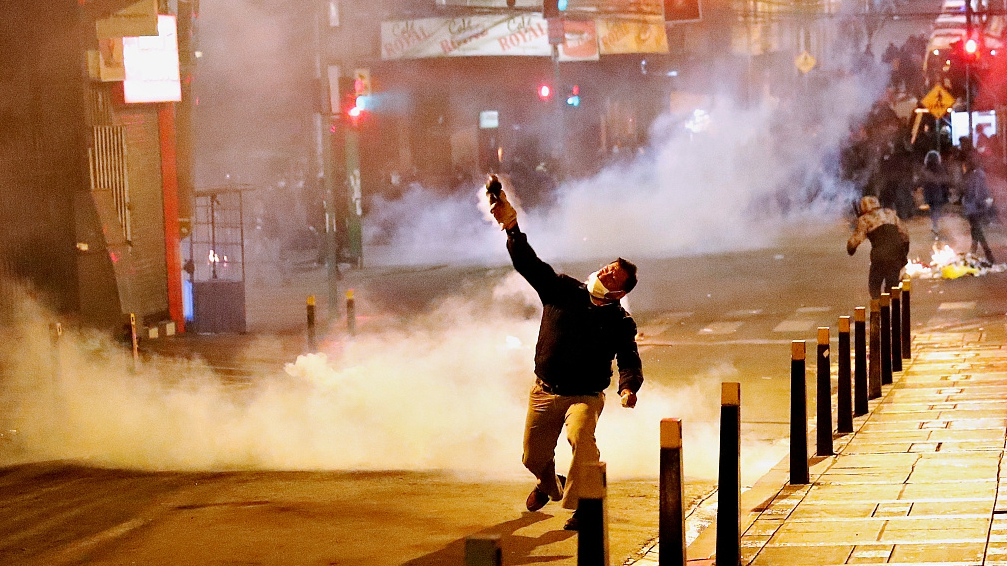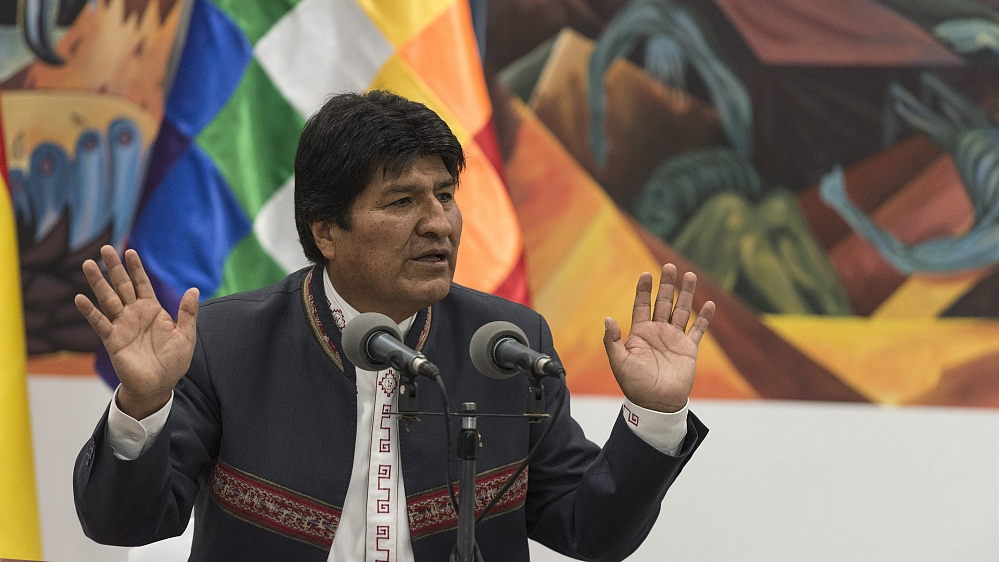A Bolivian protest leader who has become a symbol of opposition to President Evo Morales on Wednesday arrived in the capital, La Paz, where he plans to formally demand the leftist leader step down after a contentious election last month.
What is the opposition doing?
Luis Fernando Camacho, a civic leader from the eastern city of Santa Cruz, intends to deliver a pre-written letter of resignation for Morales to sign following a contentious election last month.
Camacho attempted on Tuesday to reach La Paz but was barred from leaving the capital's main airport in nearby El Alto for several hours as government supporters massed outside. An air force plane later returned him to Santa Cruz.
But on Wednesday, Camacho returned and was whisked away from the airport in a convoy in the midst of a huge security presence and with rival protest groups massing outside.

A protester throws a tear gas canister during clashes between supporters and opponents of Bolivia's President Evo Morales in La Paz, Bolivia, November 5, 2019. /VCG Photo
A protester throws a tear gas canister during clashes between supporters and opponents of Bolivia's President Evo Morales in La Paz, Bolivia, November 5, 2019. /VCG Photo
Camacho's effort is likely to stoke tensions following weeks of long protests and strikes since the October 20 vote. Hostilities have ramped up since Tuesday night in La Paz and Cochabamba with clashes between Morales supporters and the opposition.
Local television footage on Wednesday showed crowds clashing in the street with unidentified groups beating people with sticks. Government supporters and anti-Morales protesters clashed outside the El Alto airport late into Wednesday night.
What are the protests about?
Morales won last month's vote with a lead of just over 10 points ahead of main rival Carlos Mesa, handing him an outright win and avoiding a second-round runoff.
The victory, however, was marred by a near 24-hour halt in the count. When tallying was resumed, figures showed a sharp and unexplained shift in Morales' favor.
International governments have called for calm and are backing an audit of the election by the Organization of American States, which has recommended that a second round vote go ahead. Morales has agreed the audit will be "binding," but many in the opposition are now demanding his removal.

Evo Morales, Bolivia's president, speaks during a press conference at the Presidential Palace in La Paz, Bolivia, October 24, 2019. /VCG Photo
Evo Morales, Bolivia's president, speaks during a press conference at the Presidential Palace in La Paz, Bolivia, October 24, 2019. /VCG Photo
Since the vote many cities have gone into lockdown with daily marches and road blocks. Camacho earlier this week called for people to blockade public institutions and the country's borders in order to hit government incomes.
Benjamín Blanco, a senior trade official, said on Wednesday that borders with Peru, Argentina, Paraguay and Brazil near the municipality of Epitaciolandia had been affected with hundreds of trucks being stopped.
Morales has defended his election win and said that the opposition is trying to lead a "coup" against him and that his rivals were inciting violence. The opposition has maintained allegations of electoral fraud.
(With input from Reuters)